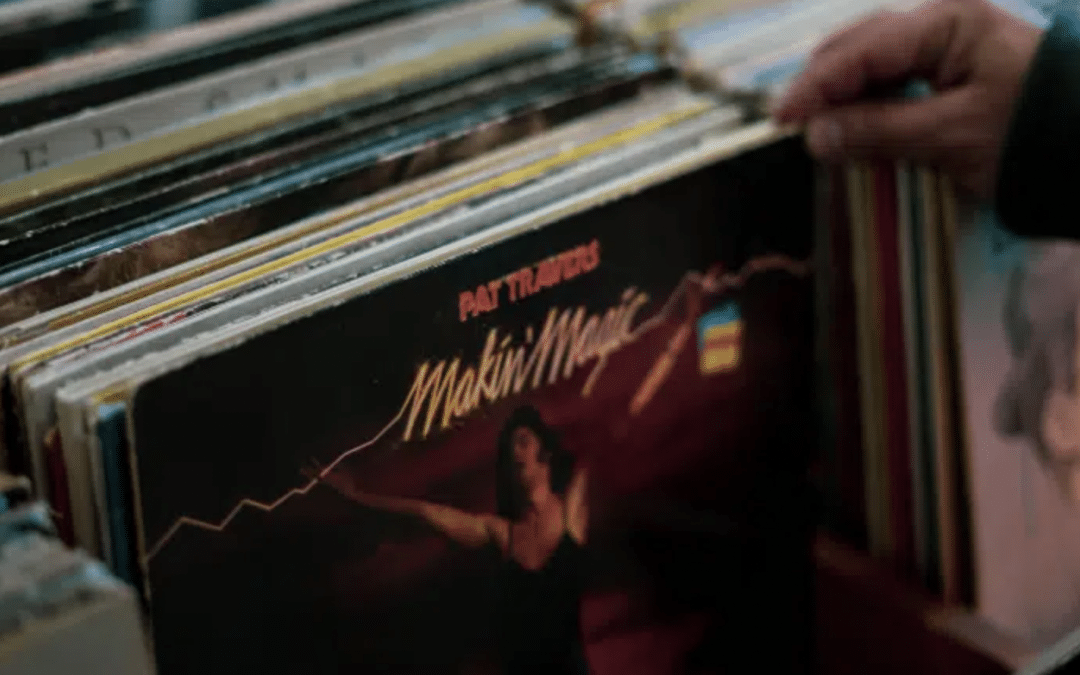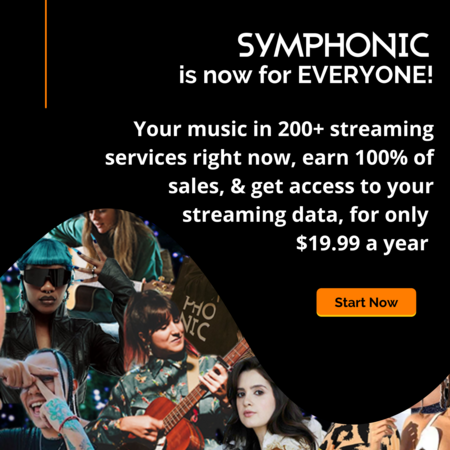
by Francesca | May 2, 2024 | Legal, Music Industry
Odds are you don’t write every song completely on your own. You’ve got co-writers, producers, and other creatives who have contributed to the creation of your finished song. If you want to ensure everyone is paid exactly what they’re owed, you need to master your split sheet game. In this post, we’ll give you everything you need to know.
Everything You Need To Know About Split Sheets
About Split Sheets
A split sheet is like a musical handshake that sorts out who gets how much credit when you write a song with someone. Whether that be divided between other songwriters, producers, lyricists, or whoever else contributed to the track, a split sheet legally identifies who wrote what percentage of the song.
During the process of creating one, each creator has to agree about how the percentages are defined. Some artists divide it evenly based on who is in the room writing and producing the song, but some base the percentages on the person’s specific contribution to the lyrics, hook, melody, and beats. However you decide to split things, it’s important everyone involved agrees on and understands the splits to avoid any disagreements down the line.
What Info Goes in a Split Sheet?
When it’s time to to fill out your split sheet, there’s a lot of info that needs to be clarified in the document. In addition, you need to make sure everything is as accurate as possible. That said, some information you’ll need to provide includes things like:
- Song Information:
- Title
- Names of contributors
- Contact information
- Ownership Splits:
- Percentage of ownership for each contributor
- Breakdown of ownership percentages for different song elements
- Signatures:
- Signatures of all contributors
- Date of signature
- Additional Terms:
- Any agreements related to royalties, licensing, or future use
- Provisions for changes or amendments
“Why is all this so important?”
If someone wants a cut of your song down the line, having a split sheet already defined will save you a lot of trouble. It also simplifies the songwriting process by eliminating that awkward energy that sometimes comes with dealing with money in any business. Not only that, but Performing Rights Organizations (ASCAP, BMI, SESAC), labels, publishers, and people who may sync your music will not pay out if there are concerns about who the creators of the song are, and who the money should be paid to.
Split sheets provide clear documentation of each contributor’s ownership stake in a song. This clarity helps prevent disputes and misunderstandings over royalty distribution and ensures that all parties receive their fair share of earnings generated by the song. Not only that, in the event of a dispute or legal issue regarding ownership, a well-documented split sheet can provide evidence of the agreed-upon ownership shares.
Now, you may be thinking… “When should I bring this up?”
Ideally, you should bring up the split sheet before you get into the studio. That way, everyone involved knows it’s coming and that you’re serious about what you’re doing. You’d be surprised how often artists just go off “vibes” when it comes to collaborating with others… (I wish I was kidding.) For example, they may be working with friends or possibly someone well-regarded in their community and not want to ruin the energy with business talk, but I assure you the vibes will definitely be ruined when you have to fight with your collaborators over money.
The more clear and direct you can be with this, the more respect your collaborators will have for your professionalism. In addition, having everyone on the same page just straight up makes things run more smoothly and stress-free until the very end. No stress, no mess… Easy as that.
Where To Get a FREE Split Sheet 👀
Our friends over at Songtrust offer a FREE split sheet you can download on their website to make things even easier. In addition, they include a sample agreement to help you see what it should look like.
[ Click here to download the FREE Split Sheet ]
To wrap things up…
If there’s one thing in life, not just the music business, that can ruin a relationship overnight… it’s money. At the end of the day, it’s up to you to protect yourself through avenues like this one. Whether it’s with split sheets or producer contracts to publishing and booking contracts, it’s up to you to cover your bases and protect future you. 💰
Good luck!

by Francesca | Feb 21, 2024 | Legal
Interested in starting your own label? There are a couple things you’ll have to do first to make it happen. In this post, we’ll give you a general rundown of the most important steps. Here’s what we know…
How To Register Your Own Record Label
What does a label do?
A record label is the entity responsible for releasing your master recordings to the public on retailers, streaming services, radio, etc.. Major parts of a record label’s work involve promotion, marketing your music, landing sync placements, and more. In addition, major labels often pay out advances to cover the recording costs for the album or single in addition to paying to produce physical releases like CDs or LPs.
“How do I know if I’m ready to start my own label?”
There are a couple reasons why someone would want to start their own record label. Whether you want to represent yourself or other artists, it’s a great way to gain some independence, learn more about the industry, direct the futures of other artists and genres, and give yourself the ultimate control over the destiny of your own music.
Regardless of why you want one, however, this is a complicated and time-consuming process that shouldn’t be taken lightly. Doing this on your own is possible, but not recommended if you have no experience in the game. Everyone has their strengths and weaknesses, so build a team that encompasses every skill you need to do this right. Once your team is in order, here’s what you need to do.
Define Your Vision
Your brand identity as a label will play a huge part in your success moving forward. It’s important to choose a specific vibe or genre you’d like to encompass as a label in order to solidify your brand identity in the industry. If you plan on taking on other artists under your wing, they’ll want someone who specializes in their specific genre and gets their vision.
In addition to deciding what genre (or genres) to focus on, this is the time to choose a label name that best represents you, get your official website set up, and trademark your label name. — Before you release anything, you MUST create your website and claim ALL social media pages for your brand prior to releasing your first album. Having your social media in order first gives it time to gain some traction before it’s time to promote you (or your clients) music.
Choose a Business Structure and Register with the State
Next, it’s time to decide on a business structure. Common options include sole proprietorship, partnership, limited liability company (LLC), or corporation. Each structure has its own advantages and disadvantages, so it’s not a bad idea to consult with a lawyer or accountant to figure out the best choice for you.
- For example, an LLC exists separately from its members, which means that those members are not personally responsible for any business debts and liabilities that may arise down the line. Instead, the LLC is responsible. On the other hand, a sole proprietorship is an unincorporated business owned and run by one person.
Choosing to go the sole proprietorship route gives you more personal control over everything, but an LLC saves you some liability if things don’t work out. These are just some general things to consider, but it’s up to you to thoroughly do your research and choose the right path for you.
Once you have made your choice, you will also need to register with the Secretary of State and update that registration annually.
Register with SoundExchange & Neighboring Rights Collection Societies
The royalties that SoundExchange collects and distributes are for the featured artist and the sound recording copyright owner. ASCAP, BMI and SESAC collect and distribute royalties for the songwriter, composer and publisher. — The difference is both satellite radio providers and webcasters pay SoundExchange when they stream music.
That means the only way to get that money is with SoundExchange.
They’re the ones who collect these digital performance rights from non-interactive music streaming on internet sources like SiriusXM and Pandora. If you don’t want to miss out on this money, Symphonic can collect SoundExchange royalties on behalf of sound recording owners and/or rightsholders.
Set Up Distribution Channels
Now, it’s time to get your (or your clients) music onto streaming platforms and DSPs like Spotify, Apple Music, Tidal, etc. To do this, you’ll have to go through a distributor like us. When you sign up for music distribution with Symphonic, we go to work to make sure your releases make the biggest impact possible on as many platforms as possible.
In Conclusion…
Creating your own record label can be an exciting and fulfilling venture, allowing you to discover and promote talented artists while leaving your own mark on the music industry. Although the process of registering a record label can seem daunting and complex, we hope these general steps will help the process go as smoothly as possible. With consistency, determination, and a passion for great music, there’s nothing you can’t do!

by Francesca | Jan 25, 2024 | Legal
This information is brought to you by Debbie Egel, an attorney whose practice includes writing and reviewing music contracts, running an independent label for over 10 years; and developing indie artists. She is knowledgeable of the economics of music, the DIY process, and has written an instruction manual for Indie artists, labels and managers called “For The Record” and teaches an on-line course. Debbie has a deep appreciation of the business of music as well as her legal knowledge as a practicing attorney. We are sharing it with you here to give you a sense of some of the decisions and complexities involved in these questions. Streaming Promotions does not provide legal or tax advice. You should consult with your personal legal and tax professionals regarding your specific situation before making any decisions.
When it comes to major record deals, there are a lot of things to consider. That’s why it’s important to always get a second, or even third, set of eyes on anything that requires a signature and involves your finances. Here’s what to look for before you dive in…
How to Know if Signing a Recording Contract Is Right For You
You LOVE music, and you have been working hard, creating and recording music. You’re also keeping up a social media presence, getting gigs, taking photos and posting, getting your look right, releasing and marketing music and the list goes on and on. Now you figure it must be working because someone has reached out and is speaking to you about signing a record deal.
While many artists view a record deal as the solution to their problems, look before you leap.
Record labels can be great opportunities to get your music in front of an audience and help you build fans. Labels can provide support in terms of production, marketing, legal knowledge and access to experienced industry vets. It takes a village and no one can do this alone. However, you should be careful, thoughtful, and selective before you sign on the dotted line.
The contract will be defined as binding you for a period of years or a number of singles or albums that have to be delivered to fulfill the agreement. The contract is like signing a marriage license. It is basically a relationship, and it is important to date before you get married. So how do you know if a record deal is the right move for you? First and foremost…
Do Your Homework
Artists should be paying attention to these items:
- What is the label’s track record with your genre?
- Do they have a website?
- Do they have artists that have been signed fared well?
- Is there already an act signed that sounds similar to you?
- What can this label do for you that you can’t currently do on your own?
- Have they listened to your music? What do they have to say about it?
- Have you spoken to them and what is their plan for you moving forward?
- What type of assets can they provide such as production, marketing, finances etc.?
- How long does the contract bind you?
- Has the company asked you about split sheets, production agreements for your current music.
- Philosophically, do both parties to the agreement have the same vision for the music?
If the relationship is a failure, it can often mean the ruin of an artistic career. So be careful!
What do labels look for?
Truth be told, artists working independently can only get so far before needing a bigger team. Labels can be that team, helping you increase your reach and overall success. However, this costs money.
Like any successful business, if you need a large injection of money in order to get to the next level, you must be able to recover that investment. With record sales declining and streaming income at an all time low, record companies need better ways to secure their investment. For example, like a 360° contract, which is used to potentially make a profit from their investment.
How have you built your fanbase? Are they buying your projects? Look at it like this: if you’ve been pumping out nothing but free albums, do you really anticipate them buying your major label debut if you haven’t put any value on your music beforehand?
What else do they consider?
Labels also typically consider physical attendance at your shows and whether you can sell units or derive money from streaming. They also look at your other income streams, like merch and touring.
Remember, both sides have to benefit or else the relationship is not going to be successful.
What you should know at the table…
Contract terms depend on the bargaining power of the artist. A new artist with no real history of earnings will not get the same terms as an artist with a proven record of strong earnings.
These terms can include:
- Royalty rates
- The number of songs to be delivered
- What costs the record company will pay for
- The amount of money the record company will spend on social media campaigns
- What type of music production support they can provide
- Whether the record company will also participate in the money earned from music publishing, merchandising and live performances.
If you have confidently answered these questions and are willing to give up a percentage of your earnings, it’s time to contact an attorney to review the deal.
From a legal standpoint, a contract that is well written and contains clear and unambiguous deal terms is off to a good start. Just make sure to use an entertainment attorney that understands these terms and can fight for you during contract negotiations.
IMPORTANT NOTE: Think twice about using an attorney the label directs you to!
In Conclusion…
It is important to point out again that team work makes the dream work. The progression in an artist’s professional career is to attract a label that provides all the necessary elements to get you to the next level. Having said all this, focus on making the best music you can and building your fan base. It all begins and ends with GREAT music. If you’re making waves, labels will come to you, and that’s a much better position to be in anyway.

by Francesca | Dec 20, 2023 | Legal
The legal aspects of this industry aren’t always so straightforward. That’s why we place the utmost importance on providing as much information as we can to help you navigate through it with ease. There are many different types of contracts artists and labels will encounter throughout their careers, so let’s break it down a bit. In this post, you’ll learn about 6 major types of record label contracts you should definitely know about. Let’s dive in…
6 Types Of Record Label Contracts
Exclusive Recording Contract
The exclusivity of this contract applies to both the Artist (as a recording and performing musician) and to the songs written by the Artist during the term of the agreement. An additional number of songs written prior to the term are also assigned in the agreement. The exclusivity in respect to the Artist applies for the length of the agreement and in respect to the songs for the life of copyright (unless otherwise agreed).
- This one is a useful agreement for a label looking to engage an artist exclusively for a number of years, both as a performer and in relation to his/her songs.
Music Distribution Contract
With this agreement, the owner of master recordings grants an exclusive right to distribute ‘records’ embodied in any format (compact discs, phonograph records, audio cassette tapes, digital audio tapes, DVD, etc) for a certain period of time (the Term) and in certain countries (The Territory).
Non-Exclusive Recording Contract
A Non-Exclusive Recording Contract is an agreement under which copyright on certain recordings is assigned (from Artist to Label), but the Artist is not engaged exclusively by the Label as a recording and performing musician.
Therefore, the Artist is able to free to assign copyrights not covered in this agreement to other labels.
- This type of contract is a flexible contract for a label looking to license particular recordings but do not wish to tie up an artist exclusively for a number of years or for a number of releases.
- It can be used as a trial agreement before moving on to an exclusive recording type of arrangement.
360 Deal Recording Contract
A 360 Deal Recording Contract is an agreement which sets out the conditions in which a music company engages an artist with respect to his/her/their services as a recording artist, songwriter, composer/arranger of music and actor/actress (for film, TV and Theatre).
It also grants the music company merchandise, sponsorship and endorsements rights for the use of the artist’s names, likenesses, and related Intellectual Property. In addition, it’s important to note that 360-type deals have come around as the recording labels response to three major trends in the music industry in recent years:
- The steady decline of revenue from record sales
- The increase in prices of tickets to live events and fan expenditure on merchandise and
- The strengthening of the capabilities of the collecting societies and publishers getting better at their roles which translates in income from public performance and synchronisation becoming more and more significant.
Music Composition and Recording Service Contract
A Music Composition and Recording Service Contract is an agreement under which an artist is engaged by a company to compose, arrange, record and produce a piece of music to be used in the company’s own production (TV, Film, Video Game, etc).
With this, the artist receives a full and final fee as remuneration for the services provided and all copyrights are transferred to the company and moral rights waived. However, the artist remains entitled to his/her writer’s share of public performance royalties received directly from his/her performance right society (PRS, BMI, ASCAP, GEMMA, etc).
- Company gets granted a license to use the artist’s name, likeness, voice and biographical data in relation to the company’s production and artist promises that the music delivered to the company does not infringe any third parties’ copyright.
- This contract is useful for companies looking to commission both recordings and compositions from an artist for use in TV, films, etc.
Recording and Publishing Agreement On Certain Recordings
A Recording and Publishing Agreement On Certain Recordings is a type of agreement under which an Artist assigns both recording and publishing rights to a label in exchange for an advance, royalties and a commitment from the label to fund and release the recordings and procure synchronization and/or performance license for the compositions.
- Recording rights are assigned for the length of copyright (50 years after release) and Publishing rights for a rights period of fifteen (15) years.
- The label will have six (6) months from delivery of the songs to procure a release of the recordings and performance and/or synchronization usages for the Compositions.
- This type of agreement is especially useful for labels looking to acquire both recording and publishing rights from artist for particular songs using one agreement.

by Francesca | Dec 13, 2023 | Legal, Music Industry
As the years go by, creators have more and more freedom over how they want to distribute their music and with whom. Whether you’ve signed a record label deal, you’ve hired a publisher or you work with an independent distributor like Symphonic, it’s important to understand what you’re entitled to as an artist. Look no further, we’re here to break it down. Here’s what you need to know…
Is My Record Label Also My Publisher?
Let’s Talk Record Labels…
A record label is the entity responsible for releasing your master recordings to the public on retailers, streaming services, radio, etc.. Major parts of a record label’s work involve promotion, marketing your music, landing sync placements and more. In addition, major labels often pay out advances to cover the recording costs for the album or single in addition to paying to produce physical releases like CDs or LPs.
(Contrary to popular belief, an advance is NOT free money. — Learn the truth about advances here.)
Think of it like this: A record label is to master recordings what a publisher is to musical compositions.
It’s actually not uncommon for some record labels, especially the majors, to launch publishing divisions in order to exercise more control over the music they release. By acquiring administration rights for the musical compositions (as well as whole or partial ownership), they are able to exploit compositions for licensing opportunities, register songs, collect all publishing-related royalties, etc.
(For example, think Warner Chappell Music; the publishing division of Warner Music Group, or Universal Music Publishing Group; the division of Universal Music Group.)
Publishers
While a record label is only responsible for the recordings songs that they control, a publisher is responsible for the underlying music composition itself, which includes covers by other artists that may have been released to physical or streaming formats.
Music publishers handle the administration of musical compositions. They collect royalties and licensing fees, seek out sync deals for TV and film, register copyrights, negotiate licenses, and more. Similarly to labels, publishers can also involve advances within their publishing deals. Typical publishing deals can include administration only deals, full publishing deals, or co-publishing deals.
Publishing Royalties
The two most common music publishing royalty types, central to any independent songwriter’s income, are performance royalties and mechanical royalties.
So, is my record label my publisher or not?
Short answer is, maybe.
Your record label is not always your Publisher, unless the record label:
- establishes itself as the publisher of your songs in your label contract,
- registers your songs in royalty collection societies, and
- collects the publishing royalties and distributes them to you.
If your record label claims to be the publisher but you have never received any publishing royalties (performance, mechanical, etc.) from your label or from your chosen PRO, then it’s time to confront your record label about this issue and get some clarity.
In Conclusion…
We hope this post has made the relationship between record labels and publishing a little easier to digest. With each service, you get different benefits as an artist. Depending on what you need, one path may be more beneficial than the other. — Regardless of what you choose, you are rightfully owed royalties for your published work. It’s important you understand what you’re owed and how to get it. Otherwise, you may be missing out on hard earned royalties and opportunities. Don’t just sit back and let corporate entities take control of your life. Get involved, do your research, and work with a team that has your back.
Good luck!

by Francesca | Dec 4, 2023 | Legal, Music Marketing
Streaming fraud is a serious problem in the music industry. In a world that’s obsessed with stats, it’s understandable why. But the issue runs deeper than just buying streams. Even if you decide to work with a service that claims to be legitimate, they might be using the same illegal methods you’re trying to avoid. Faking success, whether intentional or accidental, is way more harmful to your career than helpful. It’s up to you to be conscious of scammers, bots, and misinformation, but we’re here to provide a helping hand.
Why Independent Artists Should Beware of Streaming Fraud
Here’s what you need to know…
Buying fake streams (along with many other illegal practices) on major streaming platforms like Spotify is nothing new. As easily as fraudulent users can steal an artist’s music to leech royalties, they can also buy streams from illegal third parties and fake them with illegal bots and click-farms. Of the most common, third parties who promise playlist placements or a specific number of streams in exchange for compensation are likely using illegitimate practices without your knowledge.
Although universal technology has advanced enough to make it easy for people to utilize black hat strategies like these, Spotify has been working tirelessly to implement their own best practices and systems to combat stream manipulation on their site.
For example, Spotify uses “a combination of algorithms and manual review by employees to detect fraudulent streams and aim to remove fake user accounts and filter them out from our metrics on an ongoing basis, as well as to require users to reset passwords that we suspect have been compromised…”
On that note, this post breaks down the biggest issues that streaming fraud causes in this industry and how, whether intentional or by accident, doing so can hurt your career for years to come.
1. It steals rightful revenue from other independent artists.
Streaming services operate with a system called a “shared pool” model, which splits all income according to the total number of streams accrued. So if the numbers are being sabotaged by fake streams, real musicians with honest streams don’t get the money they deserve.
According to Rolling Stone, “three to four percent of global streams are illegitimate streams…That’s around $300 million in potential lost revenue moved from legitimate streams to illegitimate, illegal streams.” //
2. It limits future opportunities.
Higher numbers don’t equal more talent, and everyone knows it. It’s not hard to tell if your streams are fake, and when they are, boy does it look bad. When labels see you’ve faked your thousands of “listeners”, they share that info with the industry. Then, you’ve lost your reliability and any opportunities that could have transpired had you just been honest and worked for real fans like everyone else.
3. Your account will be suspended and/or deactivated.
With today’s constantly evolving technology, streaming platforms have adapted to be able to automatically scope out fraudulent streams and artists. Once you’re caught, your account will be suspended or deactivated all together, forcing you to start from square one.
4. Lastly, you’re straight up wasting your time & money.
The fact of the matter is, all the time and money you spend falsifying streams and using black hat tactics to cheat your way to the top could’ve been spent on some legitimate marketing, proper ads and other perfectly good tactics to organically improve your stats online.
The key is to do your research and find reputable services that you can be sure are doing the right thing. Some services will claim to get you thousands of streams or followers overnight, and what they’re really doing is using bots of their own to cheat the system.
Our advice: Be very careful with how and where you use your hard earned money. Always do your research on every company you plan to go into business with. Talk to prior clients, review testimonials, and make sure you’re spending your dollars wisely.
In Conclusion…
Let’s face it. There’s no way to suddenly gain thousands of dedicated monthly listeners overnight. There are, however, tons of legitimate ways to make it happen over time. The trick is to strategize wisely, always do your research, and work on growing an exceptional team to help you along the way.








